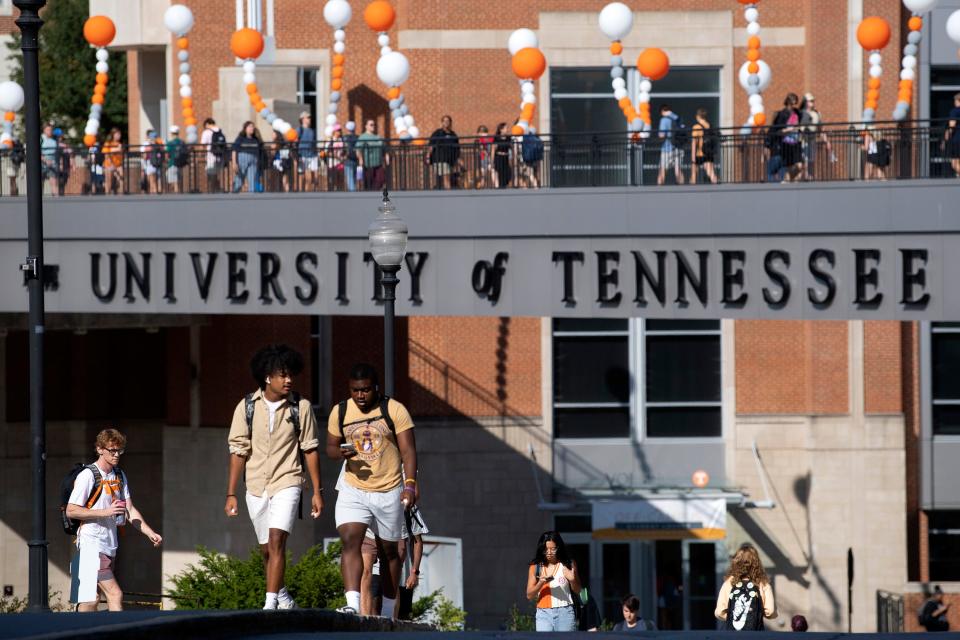High administrator salaries make it tough for students to afford college | Opinion
The cost of higher education and the associated debt for those who attend college has been a popular topic in recent years eliciting public cries and political debate for change.
That said, it’s no surprise that currently the U.S. is processing news regarding President Biden’s bold move to forgive the debt for those students that racked up gigantic federal loans while pursuing higher education degrees.
Instead of asking if loans should be forgiven or not, we should examine a different question.
Why is higher education so expensive that paying back federal loans attained while attending is nearly impossible?
The answer in part is due to rising tuition costs fueled by the need to pay the high salaries and costs for the ever-increasing number of administrative positions that have been added to higher education institutions in the last few decades, otherwise known as "administrative bloat."
You read that right. Higher education institutions are extremely bloated with administrative positions including presidents, multiple vice presidents, assistant vice presidents, assistants for the assistant vice presidents, and numerous other added positions. In most cases, these positions are accompanied by at least one secretary or support staff.
Hear more Tennessee Voices: Get the weekly opinion newsletter for insightful and thought provoking columns.
College presidents are making more than the Tennessee governor and U.S. president
The price tag for all the positions is hefty, with the bulk of the cost being passed along to students and taxpayers.
In the 2018 article in the Planning for Higher Education journal, the authors of "An Exploration of Administrative Bloat in American Higher Education" write that the National Center for Education Statistics (NCES) reported in 2015-16 that “postsecondary institutions in the United States spent $536 billion” dollars while only “27% of this amount was used for educational purposes."

Where is most of the money going? It’s being spent on administrative positions and salaries.
Administrative bloat is not just an idea but evidenced by data. In the article “What’s that Smell? Bull**** Jobs in Higher Education,” data provided shows a drastic increase in administrative positions from 1976-2018 with a shocking increase of 452% in administrative professionals as compared to a 78% increase in student enrollment and a 92% increase in faculty at higher education institutions nationwide (Delucchi et al., 2021, p. 3). The authors add that “80% of employees feel their managers are useless and they could do their jobs just as well without them” (p. 19).
Salaries for top higher education administrators exceed Tennessee Gov. Bill Lee’s salary of $194,000 a year and even U.S. President Joe Biden’s salary of $400,000 a year. For example, Middle Tennessee State University’s Sidney McPhee earns over $414,000 a year while Tennessee State University’s president Glenda Glover earns over $311,000 a year. University of Memphis recently hired new president Bill Hardgrave with a salary of $650,00 a year.
Additionally, higher education institutions all have governing boards that employee numerous individuals, all with high salaries as well. The Tennessee Board of Regents Chancellor Flora Tydings earns over $386,000 a year and University of Tennessee’s President, Randy Boyd recently approved a $160,000 raise for Chancellor Donde Plowman increasing her salary to $820,000 annually. UT’s Health Science Center Chancellor Peter Buckley earns $950,000 annually.

Other states offer high pay to administrators with the University of Kentucky paying its president over $838,000 a year. Fans of the University of Alabama may be unaware of the rising tide associated with administrative pay. The president there earned over $815,000 in 2020.
Sign up for Latino Tennessee Voices newsletter: Read compelling stories for and with the Latino community in Tennessee.
Sign up for Black Tennessee Voices newsletter: Read compelling columns by Black writers from across Tennessee.
Forgiving student loans alone is not a sustainable solution
In fact, every state in the union pays higher education administrators and governing board members obscenely high salaries. These board members, college presidents, their executive staff, and support staff exceed the salaries and costs associated of those who serve in the highest ranks of both the state and the federal government.

The gluttony of administrative positions in higher education and upper administrative salaries needs to be purged.
Simply forgiving student loans is short-sighted and while some may argue its need and virtue, it is far from a sustainable solution.
Until we address the administrative bloat in higher education and the grossly overpaid salaries that accompanies it, there is no real relief for our nation’s students. Ignoring this heavy issue and expecting taxpayers to continue to pick up the tab is not a logical solution. It’s time to examine our excessive spending habits in higher education and begin cutting the fat to get our higher education system back in to shape.
Elizabeth Fitch is an associate professor of biology at Motlow State Community College and was the former dean of the Smyrna Campus.
This article originally appeared on Nashville Tennessean: 'Administrative bloat' makes it tough for students to afford college

